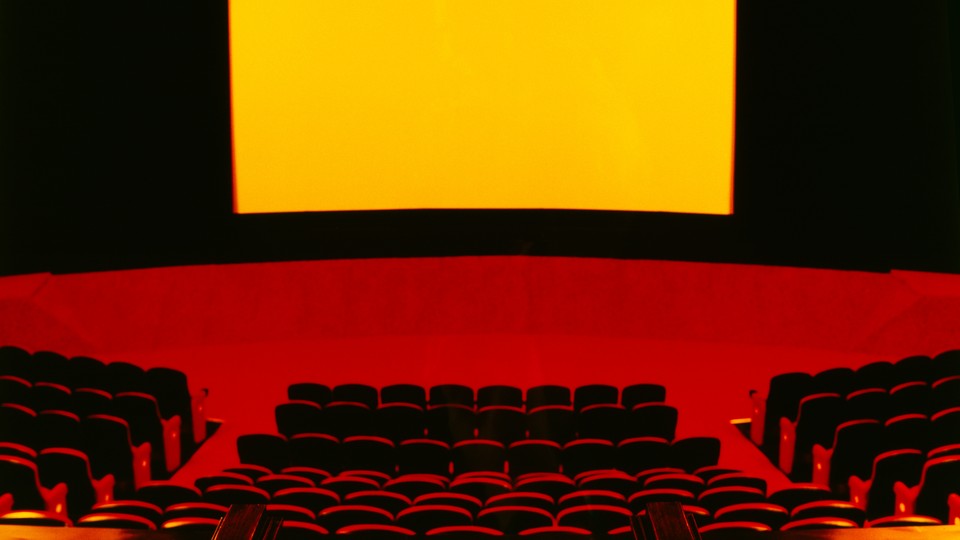Hollywood’s Summer-Movie Blues
5 min read
Fast & Furious 6. Pirates of the Caribbean: At World’s End. Top Gun: Maverick. For decades, Memorial Day weekend has been a reliable time for unveiling a new installment in a popular film franchise, sometimes to the tune of more than $100 million at the box office over the holiday break.
But this year’s Memorial Day weekend returns were meager, delivering a blow to Hollywood. Furiosa: A Mad Max Saga, earned just $32 million; the other new release, The Garfield Movie, cracked only $31 million. Excepting 2020, when the pandemic kept theaters closed, these numbers added up to the lowest Memorial Day domestic box office in nearly three decades, leaving the month of May—the traditional kickoff to summer moviegoing season—drenched in “a sea of red ink,” the box-office analyst Bruce Nash, who runs the movie-tracking database The Numbers, told me. “People just didn’t show up,” he said.
Last weekend’s failures may mark the beginning of an unusual summer packed with Pyrrhic victories and well-reviewed but overlooked projects. Still, a bad Memorial Day weekend doesn’t mean that the movie industry is in free fall. “Everyone’s trying to signify this summer as an inflection point,” Paul Dergarabedian, a senior media analyst at the data-tracking company Comscore, told me. “I completely discount that, because I’ve seen enough outliers … This business, in terms of theatrical box office, has a very short-term memory.”
The summer of 2024 was always going to be a rough year for theaters, he explained: The writers’ and actors’ strikes in 2023 pushed back the release of major installments to popular franchises, leaving screens devoid of surefire hits, and the lack of a blockbuster at the end of 2023 set theaters up for a less-than-stellar start to 2024. Fewer people going to theaters has meant fewer people seeing trailers, which has meant fewer people thinking of moviegoing as a must-do activity, but audiences are notably interested in upcoming projects such as Inside Out 2and Deadpool & Wolverine. “I don’t think it’s going to be great, but I think it’s going to be okay,” Thaddeus Bouchard, the president of the box-office-analysis outlet Screendollars, told me of this summer’s potential earnings.
In other words, Hollywood has a cold, not a terminal illness. If anything, the underperformance of Furiosa and The Garfield Movie reveal just how difficult it has become to not only rebuild but maintain the general public’s interest in moviegoing.In a study released by the Motion Pictures Association in 2020, the typical moviegoer bought only 4.6 tickets over the course of 2019, and the majority of moviegoers saw a film less than once a month. That pattern seems to have held steady after the pandemic. After all, a firehose of streaming content remains available—some of which plays in theaters for only a brief period before becoming available to watch at home and at a far cheaper price. (Plus, viewers don’t have to pay extra for concessions, babysitters, and parking.) Barbenheimermay have drawn audiences to theaters, but it certainly hasn’t kept them returning week after week. “Once people aren’t in the habit of going to see movies,” Nash said, “it becomes hard to get that audience back.”
Not that the industry isn’t trying. Ticket prices won’t be dropping significantly—theaters need high rates to function, Nash pointed out—but many cinema chains have invested in premium experiences, including IMAX screens, reclining seats, and upscale dining options. Studios, meanwhile, have been adjusting their strategies for franchises that have been losing luster, by rearranging release calendars and slowing the output of content. Still, what Hollywood needs is a consistent stream of juggernauts—projects that are undeniably worth the entry price. Marvel films kept the business afloat for more than a decade, following other runaway hits such as Harry Potter and TheLord of the Rings, but franchise films are no longer guaranteed successes. Neither, for that matter, are original, critically acclaimed ones with movie stars. Instead, many recent blockbusters have arrived seemingly out of nowhere: The Taylor Swift and Beyoncé concert films succeeded because catching the singers’ performances in theaters cost far less than paying for their live shows.
Perhaps it’s time, then, to reconsider what constitutes a “healthy” box office in this moment. Both Furiosa and The Garfield Movie were estimated to make well below $100 million, but the ballpark figures were still higher than their eventual grosses. Even such slight overestimation—especially for films that aren’t meant to appeal to adults and children alike—made their earnings seem worse by comparison. Currently, the benchmark for a successful summer movie season is $4 billion, and that figure is, Bouchard said, “a little too high.” Summer ticket sales are already 22 percent behind 2023 and 41 percent behind 2019, according to Comscore. Given such numbers, Nash said, “it’s reasonable to say at this point that the business model should be built around an assumption that we are a smaller market.”
Until these perceptions change, though, this summer will appear to be a strange one, an anomalous dip caused by months of low earnings that haven’t encouraged general audiences to head to theaters on a regular basis. In the meantime, the industry is trying to manipulate so many variables—which actors could become box-office draws, which franchises aren’t experiencing fatigue, which projects should stream rather than play in theaters, which dates might be most appealing for release—but no individual movie will cure Hollywood’s box-office blues. Instead, Dergarabedian said, “Stability is key … Every piece of this puzzle relies on the other.” The moviegoing experience itself needs to be routinely appealing to be lucrative—and a meme-worthy popcorn bucket or film-title portmanteau will only stoke interest for so long.
Ironically, Dergarabedian noted, the underperforming films will help next year’s headlines: “2025 is going to look really strong,” he said. “Let’s talk a year from today, and I will be saying very different things.”



